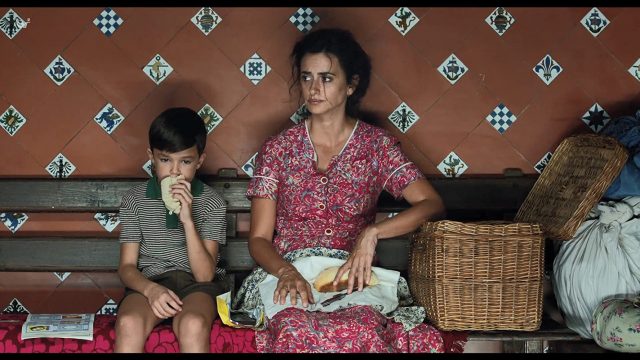Pedro Almodovar, the Oscar wining Spanish filmmaker, is one of the most prominent voices in world cinema. With a career spanning 40 years and over 20 films, he has become an influential and important filmmaker. His films are recognizable upon a single glance as colorful, splashy, queer, and referential to classic cinema. One of Almodovar’s favorite themes is motherhood, often exploring the complex relationship between mothers and children. In most interviews, he brings up his relationship with his mother and other women relatives from his village in Spain. However, he often films his movies from the perspective of the mother, not the child, and thus allowing for a more three-dimensional depiction of motherhood.
One of Almodoar’s most famous films is All About My Mother, his 1999 homage to motherhood, All About Eve, and A Streetcar Named Desire. It’s such a soft and sweet melodrama, even as it explores heavy and complicated themes like transgender life, pregnancy, death, and creative expression. Cecilia Roth plays Manuela, a woman devastated by the accidental death of her son. She searches for her son’s father, the trans woman Lola (Toni Cantó), and along the way, finds her own found family. The relationships between Manuela and the women in her life blur the line between motherhood, sisterhood, and friendship. This tribute to women, actresses, and mothers is one of Almodovar’s most sophisticated films with glowing visuals, fully realized performances, and poetic dialogue.
In the semi autobiographical 2019 film Pain and Glory, Almodovar frames the mother/son relationship through the son’s perspective. This is rare for Almodovar, and yet the dynamic is complex and revealing. As Salvador (Antonio Banderas) reflects on his childhood, his mother Jacinta (Penelope Cruz), is a fierce and devout woman who pushes her young son to get a better life. When Salvador is an adult, his mother (now played by Julieta Serrano) tells him of her disappointment with him, despite his own success. Their relationship is fraught but somewhat loving. This might be Almodovar’s most conventional depiction of motherhood, but that doesn’t mean it isn’t interesting or wrenching. Jacinta always plays like a fully realized person, beyond just being a mother.
1991’s High Heels may not be well known but it is worth checking out for its completely bizarre and complicated dynamic between Rebeca (Victoria Abril) and her star mother Becky (Marisa Paredes). Directly referencing Ingmar Bergman’s classic Autumn Sonata, their relationship has an inherent competitiveness and resentment, as they both have affairs with the same man and both embroiled in his murder. Almodovar presents Becky as flawed and immature (why is the elder woman using a child’s nickname?), but still ambitious and sexual. High Heels is not as elegant as it could be, but is very much a variation of the woman’s pictures of 1930s and 1940s Hollywood. It is a very intense film, balanced by a vivid design and remarkable performances.
2016’s Julieta features Emma Suarez as Julieta, a woman who has been estranged from her daughter Antia (Priscilla Delgado, Blanca Parés) for years. A chance encounter with an old friend forces Julieta to recall the circumstances to the estrangement. The loss of Julieta’s partner and Antia’s father Xoan (Daniel Grao) led to a complete depression that alienated her daughter. The film plays like a mystery, with the adult Antia as a ghost that Julieta is chasing. As Julieta falls deeper into her depression, she nearly goes insane and her trauma is painfully felt. Julieta is more low-key than most of Almodovar’s melodramas and he tones down his usual aesthetic to completely rid the film of any flashy distractions. Instead, it a somber but amazingly effective drama about loss and regret, and the power of a woman’s love.
Finally, one of my personal favorites is 2006’s Volver. Penelope Cruz stars as Raimunda, the central figure in a film about generations of women coming together and working through their collective trauma and mistakes. Volver is funny, weird, sentimental, and wrenching. The balance of Almodovar’s colorful palette and the gutting drama is handled with grace and precision. Volver expresses such love for the women that Almodovar grew up with; these women find peace and love when finally talking to each other. They cultivate knotty relationships with each other, both resentful but also harmonious. Volver also tracks how relationships among women change throughout life, sometimes adopting a friend as a daughter or taking care of your own mother. Volver is one of Almodovar’s finest efforts, showing the strength and vulnerability in motherhood.
*stills courtesy of IMDb
Follow me on Twitter and Letterboxd.
Don’t forget to follow us on Twitter or Instagram or like us on Facebook. Also subscribe to our YouTube channel.
Discover more from
Subscribe to get the latest posts sent to your email.





